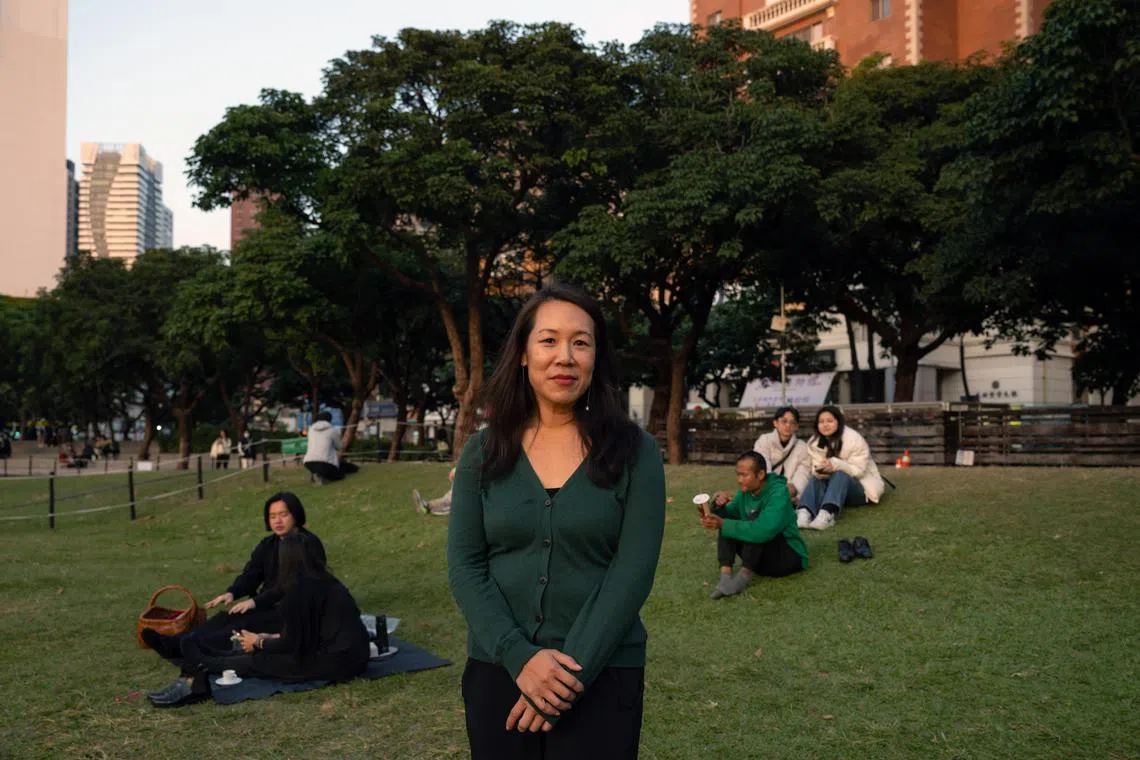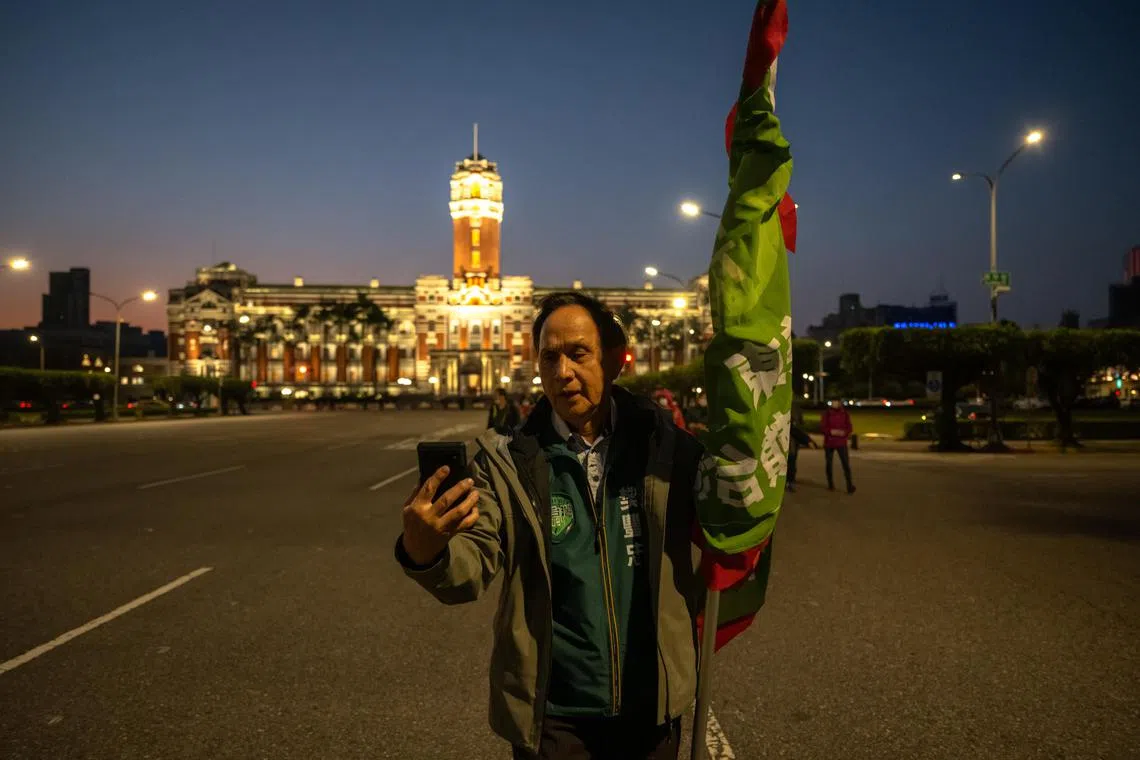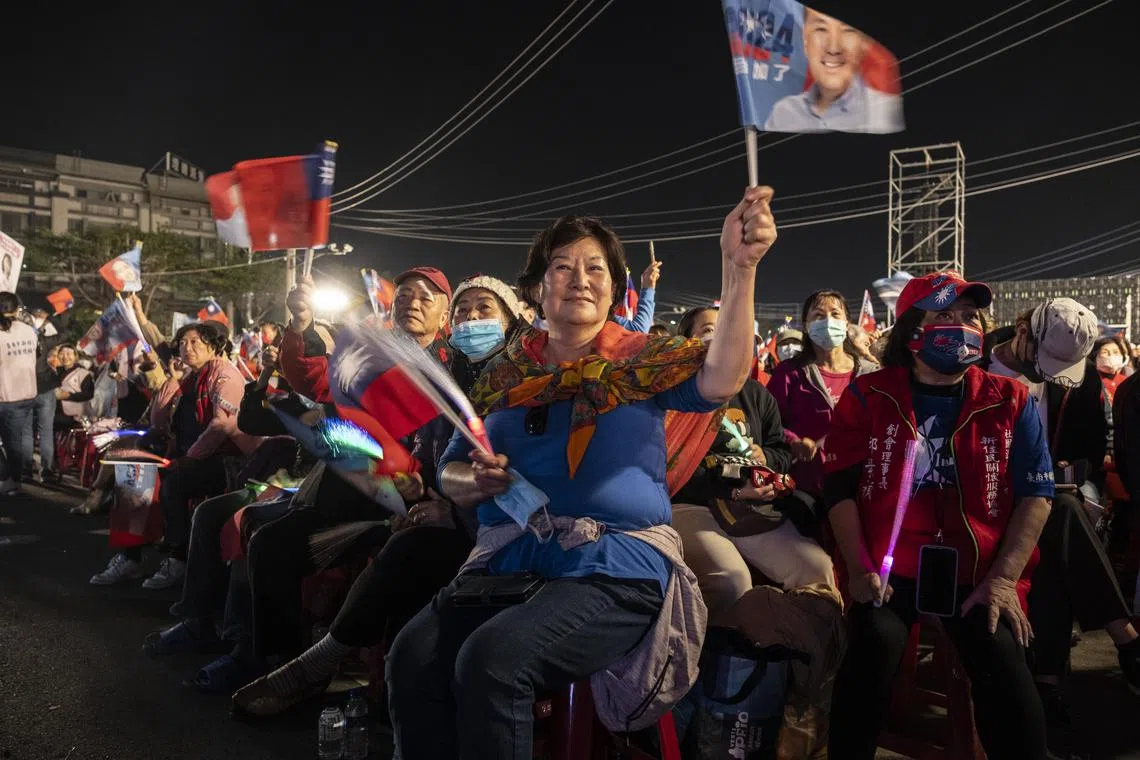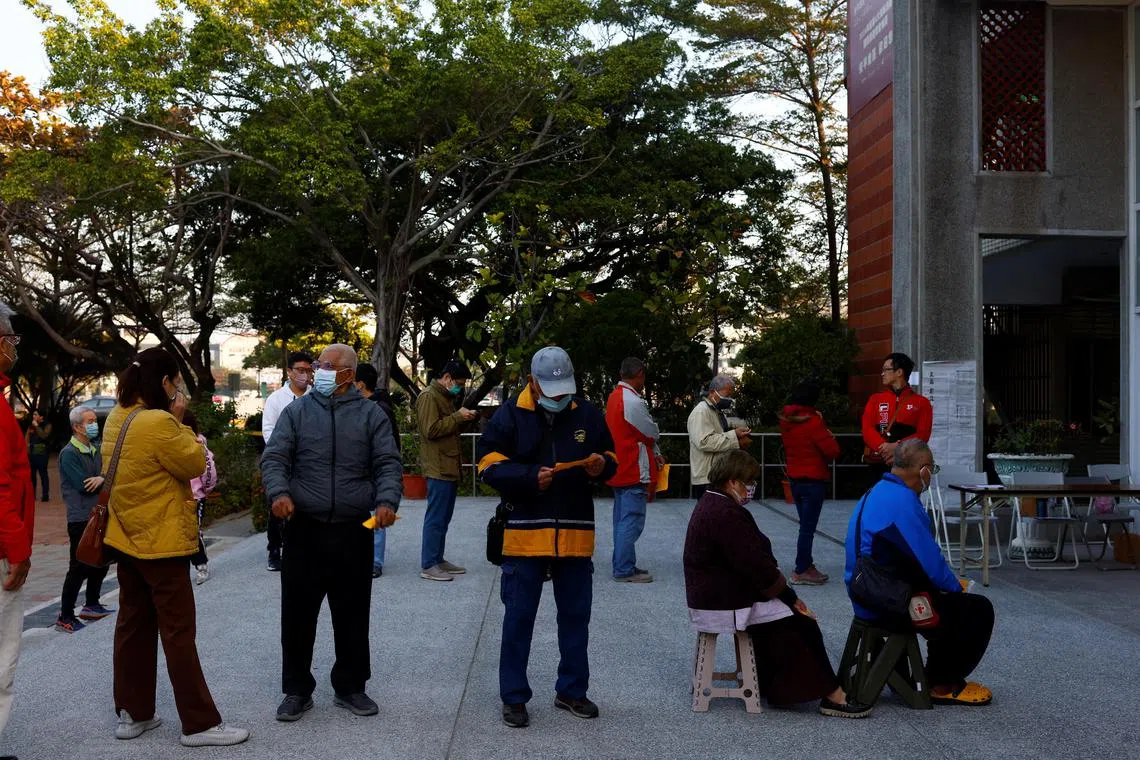For Taiwanese Americans, voting back home takes more than a postage stamp
Sign up now: Get insights on Asia's fast-moving developments

Ms Leslie Lai travelled from her home in Oakland, California, to Taichung to vote in Taiwan's presidential election.
PHOTO: NYTIMES
TAINAN – They are some of the most determined voters in the world.
Every four years, several thousand Taiwanese Americans book expensive plane tickets, pack their belongings and fly across the Pacific Ocean to cast ballots in Taiwan’s presidential election.
Dual citizens can vote in Taiwan, with one catch: They cannot do so by mail.
What once felt like a patriotic duty has taken on greater urgency in recent years as China has intensified military pressure on Taiwan and doubled down on threats to absorb the island by force if it considers it necessary.
The increasing tensions have become an additional flashpoint in US-China relations.
“Freedom and democracy are on the line,” said Ms Leslie Lai, 42, who had travelled from her home in Oakland, California, to Taichung, a city in central Taiwan, where she spoke by phone before the Jan 13 election.
For many first-generation Taiwanese Americans, the quadrennial journey back to Taiwan has become something of a diaspora tradition since 1996, when the island held its first democratic presidential election.
Ms Lai said that as a child in upstate New York, she was always vaguely aware of the latest developments in Taiwanese politics and would watch her parents fly back themselves to participate in presidential elections.
The desire to still vote in homeland elections speaks to the fluid identity that many immigrants embrace in an age of air travel and non-stop campaign updates through social media and streaming video.
They are fully invested in their lives in America, including bracing for the monumental US presidential election in November, yet retain a toehold overseas.
All three of the main presidential candidates have visited the US in the last six months, partly to shore up diaspora support.
Many first-generation Taiwanese Americans have felt stronger connections to their native land in recent years as China has threatened the island.
While some voters in Taiwan have said that domestic concerns, such as the rising cost of housing, are some of the most important issues in the 2024 election, Taiwanese Americans have been more worried about Taiwan’s sovereignty.
“When we live in the United States, we enjoy freedom,” said Dr Fan Foun-chung, 76, a retired physician in Livingston, New Jersey, who immigrated to the US from Taiwan in the 1970s and has gone back to vote for the Democratic Progressive Party in nearly every presidential election since.

Dr Fan Foun-Chung, a retired physician from Livingston, New Jersey, in Taipei on Jan 11.
PHOTO: NYTIMES
“How can we turn around and say that Taiwan should be a part of China?” he said.
The 2024 presidential ticket featured candidates from three parties.
There is the governing Democratic Progressive Party (DPP), which asserts a distinct Taiwanese identity and has sought to bolster relations with the US, and the long-established Nationalist Party – or Kuomintang – which has pushed for Taiwan to have closer ties and negotiations with China while retaining sovereignty.
Then there is the upstart Taiwan People’s Party, which has sought to tap into disillusionment with the two dominant parties by focusing on bread-and-butter issues.
DPP’s Mr Lai Ching-te won the election with 40.1 per cent of the vote on Jan 13.

People waiting for the opening of a polling station to cast their vote in Taipei on Jan 13.
PHOTO: REUTERS
Ms Amy Chou, 67, a restaurant owner in San Francisco who has lived in the US for 32 years, said that she flew back to vote because she was particularly concerned about the ruling DPP.
She blamed the party for what she said was its failure to maintain trade and tourism exchanges with China that could help to stabilise relations.

San Francisco restaurant owner Amy Chou attending a campaign event for presidential candidate Hou Yu-ih, in Tainan, Taiwan, on Jan 5.
PHOTO: NYTIMES
“It’s time for a change,” Ms Chou said in an interview at a raucous political rally last week in the southern Taiwanese city of Tainan, where she clutched a flag emblazoned with the face of Mr Hou Yu-ih, the Nationalist candidate
Dr Fan leads an organisation that has been helping to rally Taiwanese Americans on the East Coast in support of Mr Lai.
Some of their activities have included phone banking events, during which supporters call their relatives and friends in Taiwan and urge them to vote.
During this election cycle, Dr Fan said he has noticed that younger, second-generation Taiwanese Americans are increasingly interested in becoming involved in Taiwanese politics.
That comes as second-generation Taiwanese Americans are experiencing a shift in their own identities.
In interviews, some of them said that, as children, they often told other Americans that they were Chinese because that was how they identified culturally or that was what their parents told them.
A handful said they did so for the sake of convenience, because people in America often confused Taiwan for Thailand.

People queueing to cast their ballots at a polling station during the presidential and parliamentary elections in Tainan, Taiwan, on Jan 13.
PHOTO: REUTERS
But as Taiwan’s international profile as a thriving democracy has risen, and as anti-China sentiment in the US has grown, some Taiwanese Americans have said that they now identify more as Taiwanese, as opposed to Chinese – mirroring a similar shift that has happened in Taiwan.
Attachment to old identities – and divisions – can be more rigid among older immigrants from Taiwan.
That was evident in 2022 when a Taiwan-born man who supported Beijing’s ruling Communist Party attacked a Taiwanese congregation in Laguna Woods, California, that pushed a Taiwanese identity separate from the mainland, killing one victim and injuring five others.
Ms Jeany Yang, 79, who attends a different Taiwanese church in Laguna Woods, said that she had been surprised by the shooting because most of the Taiwanese Americans she knew rarely discussed politics in public.
It did not mean they were uninterested, though.
Ms Yang estimated that at least half, or around 250, of the Taiwanese residents in her retirement community had flown back to Taiwan to vote in recent weeks.
She had intended to do the same but cancelled because of last-minute health issues.
Instead, she said, she and her husband would stay glued to Taiwanese news on YouTube and hope for their favoured candidate, Mr Lai, to win.
She framed the Taiwanese contest in the same unequivocal way that many American voters portray the US presidential race.
“This is a battle between evil and goodness,” Ms Yang said. “We are seriously praying that Jesus picks the right person.” NYTIMES


